The current global financial crisis is unique in that, unlike most previous crises — which started in the periphery of the world economy, and whose deep and long-lasting impacts were limited to isolated parts of the globe — today’s crisis is rooted in Wall Street, at the heart of the globalized market, from where it has grown and spread worldwide. As a result, powerful, globalized economies have taken the first and hardest punches. Although still a bit groggy, they are now struggling to get back on their feet. But while economists discuss how and when economies will emerge from this […]
Economics & Business Archive
Free Newsletter
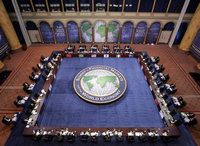
As the world economy stares down the most severe crisis it has seen in nearly a century, the International Monetary Fund (IMF) finds itself positioned somewhere between danger and opportunity: Danger lurks in emergent alternatives to the fund; opportunity lies in reform. Yet, reform requires change, and change does not come easily in the realm of international politics. Invariably, it creates winners and losers. The United States and Europe have long been the beneficiaries of the international financial institutions crafted during the waning hours of World War II. But the world of today is a far cry from that of […]
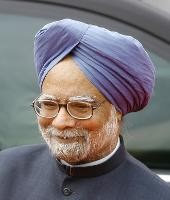
NEW DELHI, India — One of India’s biggest ever defense deals with Israel, worth $2 billion, hovered on the brink of collapse earlier this month after allegations of graft to the tune of $120 million surfaced. Indian Defense Minister A. K. Anthony was quick to deny the claims, while asserting that the government would take strict action against the Israeli company and the Indian middlemen involved should the charges be true. This was, however, the second blow to Indo-Israeli relations in a matter of days — the first being a controversial video produced by Israeli defense firm Rafael and shown […]
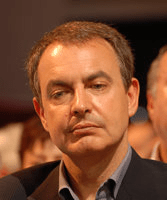
MADRID, Spain — FRIENDS AT LAST: Every Wednesday, a large crowd gathers at noon on the edge of the parade ground of the Royal Palace in Madrid to watch the ceremonial changing of the guard. Started a year or so ago, the ceremony involves all the traditional elements of military choreography — colorful uniforms, a band, cavalry, and even two horse-drawn field artillery pieces. Unlike at Buckingham Palace, where a similar drill has been carried out every day for centuries, the guard does not have the symbolic duty of protecting the Spanish monarch: Spain’s king and queen live some distance […]
The would-be “Twitter revolution” in Moldova is already showing signs of fizzling, with no new reports of protests, the original organizers of the anti-government gathering of 15,000 distancing themselves from the violence of a few, and the leader of the Communist government attempting to spin the protests as a coup plot by neighbor Romania rather than as a spontaneous outpouring of anger against his feckless government. Yesterday, however, the Internet was, yes, atwitter with news of this Twitter Revolution. Almost as soon as this New York Times story was posted on the Times’ Web site yesterday (and on the front […]
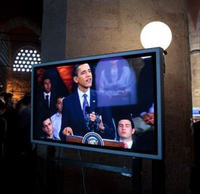
Anyone who hoped President Barack Obama would return to Washington with a suitcase full of gifts from his mostly European tour will find the souvenirs largely disappointing. While Obama managed to bring back some important achievements, most of them came in the form of warm feelings. Those are hard to gift-wrap. Following his maiden overseas voyage as U.S. president, Obama arrived home to find the same urgent crises he had left behind, compounded by new foreign policy challenges that had arisen during his absence. Making matters worse, the trip itself, while undeniable fruitful, produced few tangible results. When viewed through […]
Nouriel Roubini’s RGE Monitor today looks at China’s economic outlook and finds that with significantly slowed Chinese growth, the nature of the bilateral economic relationship that defined the world economy over the last several years — a high U.S. trade imbalance with China driven by U.S. consumption and Chinese saving — is inevitably changing: . . . Despite the fact that China’s aggressive policy response included monetary easing, scaling up of bank lending and a particularly aggressive scaling up of government investment to offset the contraction in private demand, there is an increased risk that China will grow only in […]
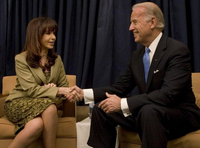
BUENOS AIRES, Argentina — Among heads of state who gathered in London last week for the G-20 summit, few are attempting to leverage the global financial crisis for personal survival as much as Argentine President Cristina Fernandez de Kirchner. With her presidency in turmoil and support as low as 29 percent, Fernandez de Kirchner recently made a last-minute proposal — rubber stamped by Argentina’s Congress — to move up this year’s legislative elections by four months. She claimed that the global financial crisis justified shortening the electoral process to give Argentines fewer distractions. But the move was widely viewed here […]

Andrew Bast’s accompanying interview with Simon Johnson, former chief economist of the IMF and currently a professor atMIT and editor of the Baseline Scenario blog, can be found here. Low expectations preceded last Thursday’s G-20 summit in London, but by day’s end a curious consensus had emerged. Prior to the summit, a rift had emerged between the United States, which was pushing for more economic stimulus, and the Europeans, who urged stricter regulation reforms. French President Nicolas Sarkozy had even threatened to walk out were he not satisfied with the measures taken. (Asked about it upon landing in London, he […]
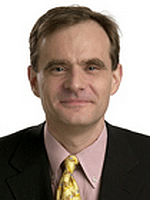
Perhaps the most significant development coming out of last week’s G-20 summit meeting in London is the news that the world’s leading economies will triple the International Monetary Fund’s lending powers to some $750 billion. The massive investment raises an immediate question: How is influence shifting within the workings of the Fund? To tease out the nuances of these developments, WPR columnist Andrew Bast spoke with Simon Johnson, chief economist of the IMF in 2007 and 2008, and currently a professor at the MIT Sloan School of Management. Many consider Johnson’s blog, The Baseline Scenario, a must-read on the global […]
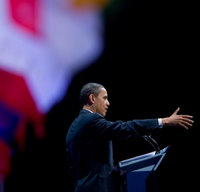
LONDON — British Prime Minister Gordon Brown might have been excused for savoring the sweetest moment of his political career yesterday evening. By the time the final slaps on the back had been delivered and the G-20 world leaders had left London, Brown’s stock had never been higher. It had been his crisis summit. And at first glance, it was a success, as summits go. For 24 hours, Brown had enjoyed what for him has become the unusual comfort of high praise, luxuriating in the warm words of fellow leaders. And none were warmer than those of the undoubted superstar […]
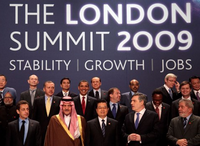
The 2012 London Olympics may still be several years away, but yesterday, the city played host to a different type of games altogether — the G-20 summit on the global economic crisis. This time, the competitors were not the world’s premier athletes but rather political leaders representing the world’s most powerful economies. By the end of the conference, though, no single country emerged atop the podium. Instead, the clearest winner appears to be the International Monetary Fund (IMF), which received another boost in its quest to reassert itself as the protector of global economic stability. Still, if the world’s rising […]
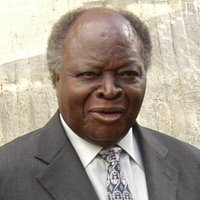
NAIROBI, Kenya — When Kenya welcomed Iranian President Mahmoud Ahmadinejad on the first stop of his first tour of sub-Saharan Africa in mid-February, it reflected how Nairobi’s emphasis on bilateral relations with Middle Eastern and Southeast Asian countries is increasingly overshadowing its ties to traditional Western allies. Beginning in 1963, when Kenya attained independence from Britain, Western countries were routinely accorded a “first amongst equals” status. A military pact signed between Kenya and the United States in 1980, allowing the U.S. Navy use of the local port of Mombasa to monitor the Far East in return for military and economic […]
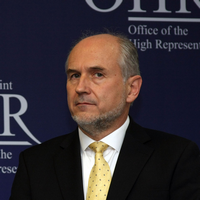
SARAJEVO, Bosnia and Herzegovina — The newly appointed High Representative for Bosnia and Herzegovina takes office as the country’s finances are on the verge of meltdown, making the need for an arbiter to break the stalemate of the country’s dysfuntional political system more urgent than ever. The 59-year-old Austrian diplomat, Valentin Inzko, is the seventh high representative since the Dayton Peace Agreement created the position 14 years ago. Unlike each of his three immediate predecessors, Inzko was not expected to be the last to exercise the office when he was introduced last Thursday. The acceptance of the continued need for […]
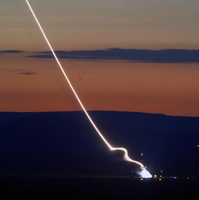
The Obama administration’s emphasis on “smart power” is by now well known. To most observers, that has meant the need to “balance and integrate all elements of our national power” in order to deter and defeat emerging threats, as President Barack Obama himself put it in a speech at National Defense University in Washington on March 12. Many have focused on Obama’s insistence, in the same speech, that “we cannot continue to push the burden on to our military alone” and his commitment to “comprehensive engagement with the world.” What has gotten less attention is the central role Obama foresees […]
